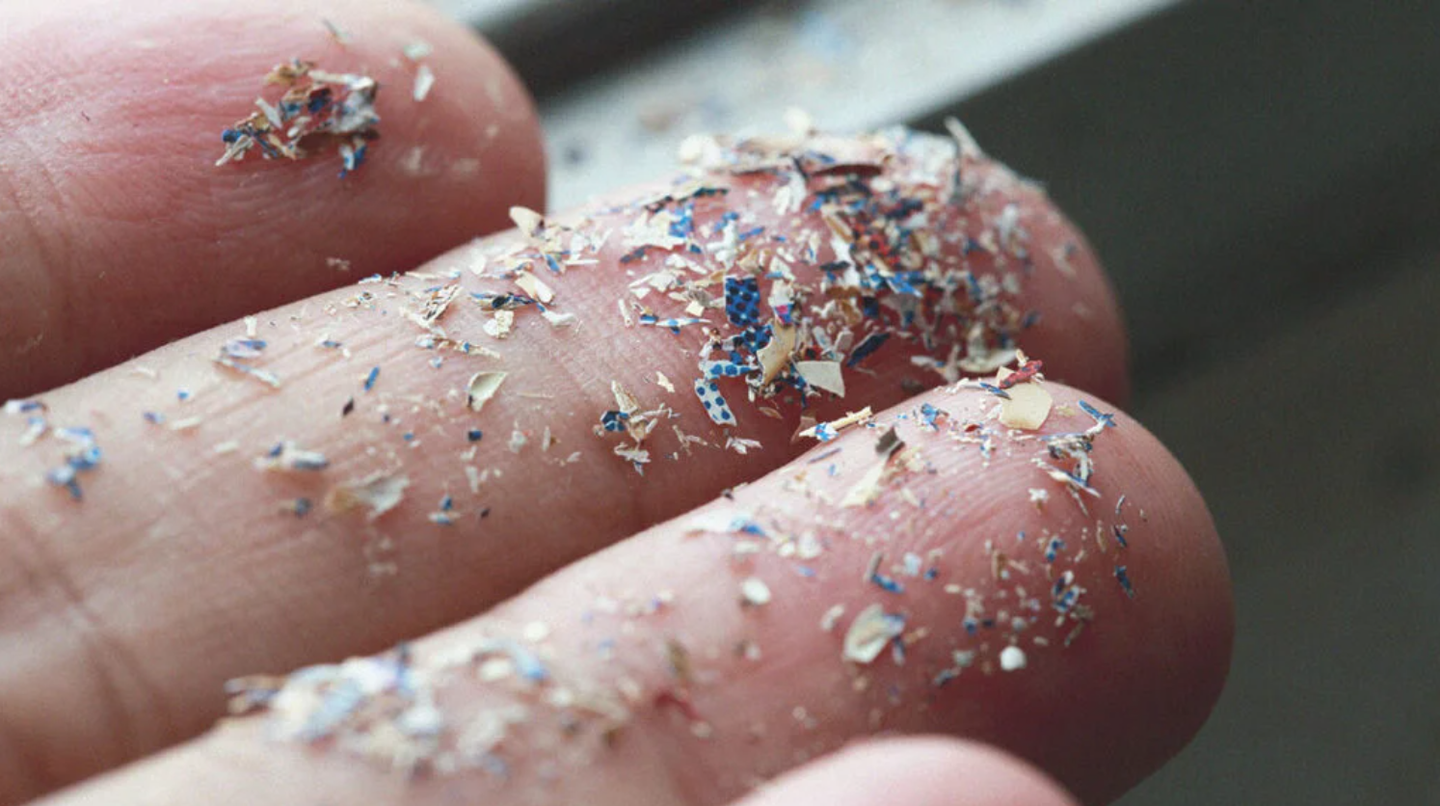Researchers develop plant-based biodegradable microplastics
The persistence of these materials, which may take centuries to degrade, contributes to escalating pollution levels on our planet.

The persistence of these materials, which may take centuries to degrade, contributes to escalating pollution levels on our planet and within our bodies. (CREDIT: Creative Commons)
Microplastics, the minute and nearly indestructible fragments originating from common plastic products, pose a growing concern as their prevalence extends beyond oceans and soil into unexpected realms such as arteries, lungs, and even placentas.
The persistence of these materials, which may take centuries to degrade, contributes to escalating pollution levels on our planet and within our bodies.
Addressing this pressing issue requires the development of alternatives to conventional petroleum-based plastics and microplastics. Recent research by scientists at the University of California San Diego (UC San Diego) and materials-science company Algenesis reveals promising findings regarding the biodegradability of plant-based polymers, even at the microplastic scale, within approximately seven months.
Generating microplastics particles and tracking their biodegradation in compost. Microplastic particles were generated by sanding solid sheets of plastic materials and size selection of the resulting particulates by sieving. (CREDIT: Nature Scientific Reports)
The study, published in Nature Scientific Reports and authored by UC San Diego professors, alumni, and former research scientists, sheds light on the potential of these polymers to mitigate environmental and health risks associated with microplastics.
Professor Michael Burkart, co-founder of Algenesis and a lead author of the study, underscores the imperative of exploring the ramifications of microplastics, emphasizing the need for biodegradable replacements to prevent environmental accumulation.
Burkart states, “We're just starting to understand the implications of microplastics. We've only scratched the surface of knowing the environmental and health impacts.
Related Stories
We're trying to find replacements for materials that already exist, and make sure these replacements will biodegrade at the end of their useful life instead of collecting in the environment. That's not easy.”
Echoing Burkart's sentiments, Robert Pomeroy, another co-founder of Algenesis and co-author of the study, emphasizes the long-standing intention behind the development of algae-based polymers for complete biodegradability.
Pomeroy states, “When we first created these algae-based polymers about six years ago, our intention was always that it be completely biodegradable. We had plenty of data to suggest that our material was disappearing in the compost, but this is the first time we’ve measured it at the microparticle level.”
Comparison of persistent EVA and transient TPU-FC1 microplastic particles. (CREDIT: Nature Scientific Reports)
The study scrutinized the biodegradability of the plant-based polymer by subjecting it to various assessments. Through respirometry, the researchers monitored the release of carbon dioxide (CO2) by microbes during compost breakdown, comparing the results to cellulose, a benchmark for complete biodegradability. The plant-based polymer exhibited a near-perfect match to cellulose.
Subsequent water flotation tests demonstrated significant degradation of the algae-based microplastics compared to their petroleum-based counterparts, with only 3% recovered after 200 days, indicating substantial biodegradation.
Chemical analysis via gas chromatography/mass spectrometry confirmed the breakdown of the polymer into its constituent plant materials, while scanning-electron microscopy illustrated microbial colonization of the biodegradable microplastics during composting.
Stephen Mayfield, a co-author of the study and a professor in the School of Biological Sciences at UC San Diego, underscores the significance of these findings in mitigating health risks associated with conventional plastics. Mayfield states, “This material is the first plastic demonstrated to not create microplastics as we use it. This is more than just a sustainable solution for the end-of-product life cycle and our crowded landfills. This is actually plastic that is not going to make us sick.”
Transitioning to eco-friendly alternatives necessitates compatibility with existing manufacturing infrastructure, a challenge that Algenesis is actively addressing through partnerships with industry players. Collaborations with companies like Trelleborg and RhinoShield aim to integrate plant-based polymers into diverse product lines, including coated fabrics and cell phone cases.
Biodegradation of materials in compost monitored by CO2 evolution respirometry. Dashed lines indicate 75% theoretical biodegradation at 45 days, which the cellulose control material must reach as an experimental validation condition of the ASTM5338 standard. (CREDIT: Nature Scientific Reports)
Burkart emphasizes the transformative potential of this research, highlighting the shift from initial skepticism to tangible progress. He states, “When we started this work, we were told it was impossible. Now we see a different reality. There's a lot of work to be done, but we want to give people hope. It is possible.”
By demonstrating the biodegradability of plant-based polymers at the microplastic level, the research offers a promising solution to mitigate environmental pollution and safeguard human health. Collaborative efforts between academia and industry underscore the feasibility of transitioning towards a more sustainable future, where plastics no longer pose a threat to our planet and well-being.
For more environmental news stories check out our Green Impact section at The Brighter Side of News.
Note: Materials provided above by The Brighter Side of News. Content may be edited for style and length.
Like these kind of feel good stories? Get the Brighter Side of News' newsletter.
Joshua Shavit
Science & Technology Writer | AI and Robotics Reporter
Joshua Shavit is a Los Angeles-based science and technology writer with a passion for exploring the breakthroughs shaping the future. As a contributor to The Brighter Side of News, he focuses on positive and transformative advancements in AI, technology, physics, engineering, robotics and space science. Joshua is currently working towards a Bachelor of Science in Business Administration at the University of California, Berkeley. He combines his academic background with a talent for storytelling, making complex scientific discoveries engaging and accessible. His work highlights the innovators behind the ideas, bringing readers closer to the people driving progress.



